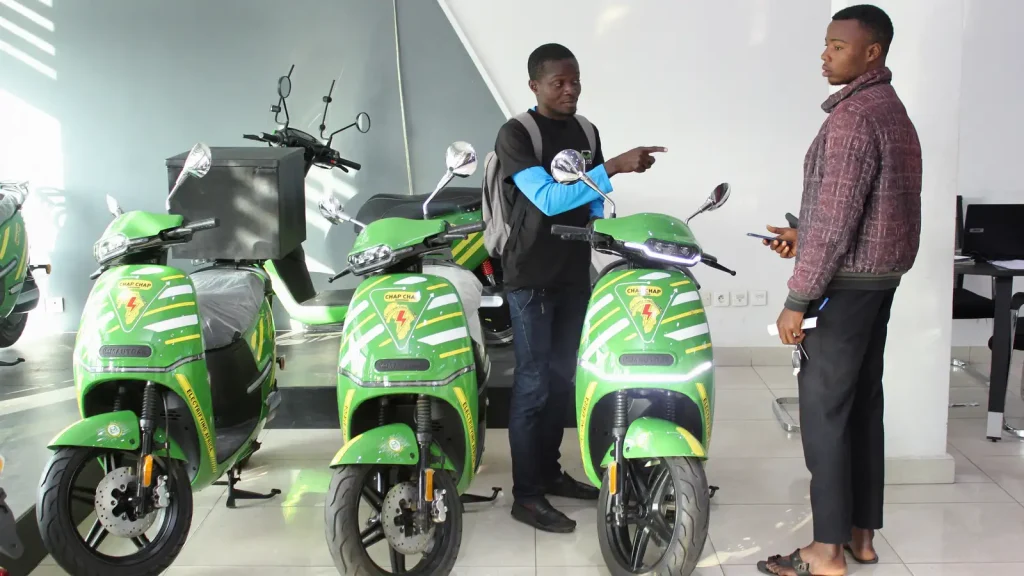In a global push towards electric vehicles, African nations are forging ahead with systems and policies to ramp up Electronic Vehicles (EV) adoption.
Despite recent headwinds, a growing shift from gasoline-powered vehicles to electric vehicles continues apace in Africa. Last year, the global sale of fully electric and plug-in hybrid vehicles rose by 31% compared to 2022, according to a 2024 report by market research firm Rho Motion.
Despite the high cost of conversion and a lack of adequate enabling infrastructure such as charging points, several countries are making notable progress.
The following is a selected list of ten countries with some of the highest numbers of electric vehicles (including two, three and four-wheelers) in Africa.
1. South Africa
In 2020, there were about 6,000 electric automobiles in SA (both fully electric and hybrid), according to government projections. The country is also exploring the possibility of manufacturing EVs, with the first electric vehicle fully manufactured in the country expected to be ready by 2026, according to the Trade Minister.
Naamsa (the National Association of Automobile Manufacturers of South Africa) expects at least 8 new EV products to be introduced in the country in 2024.
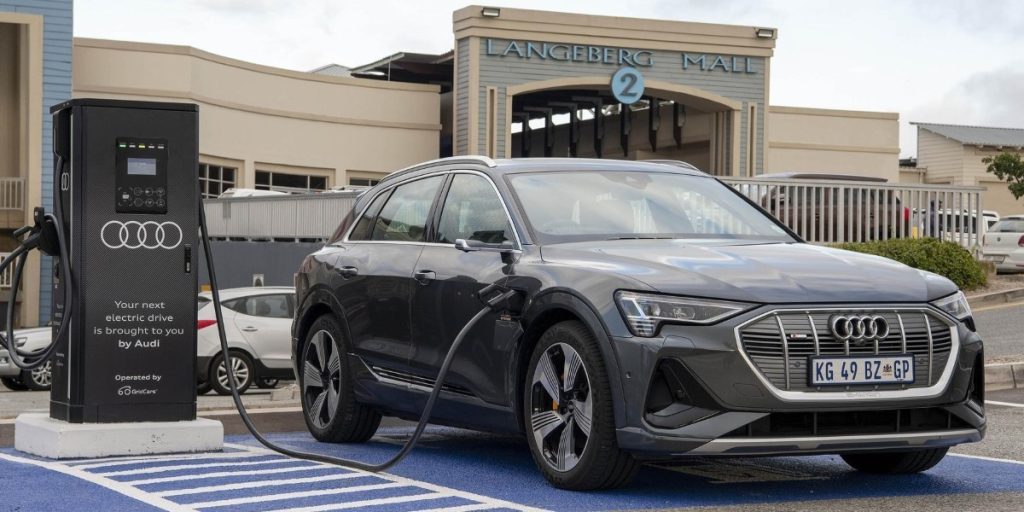
2. Morocco
Morocco’s EV fleet included more than 10,000 hybrid vehicles in 2022, according to ‘Société Nationale des Autoroutes du Maroc’, Morocco’s national authority for the management of expressways.
Like South Africa, Morocco boasts a vibrant vehicle manufacturing industry, including world-renowned car makers such as Renault and Stellantis. The country is targeting the production of 1 million cars of all types by 2025. Part of the plan is to have EVs represent up to 60% of car exports by 2030. Ongoing investments in battery manufacturing could expedite these ambitions.
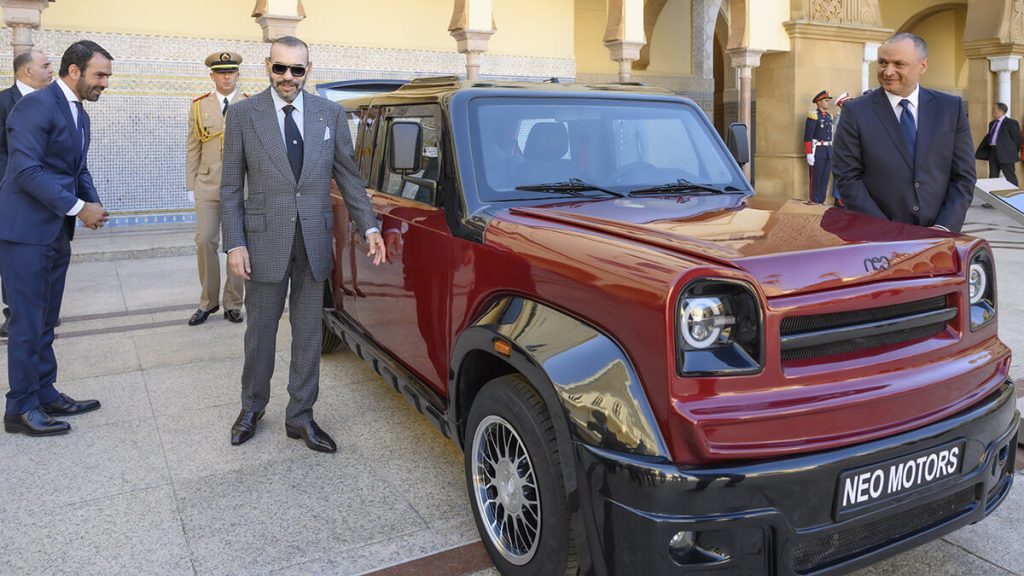
3. Kenya
Statistics by the Energy and Petroleum Regulatory Authority released in April 2024 show the number of EV registrations stood at 3753 as of 2023. Between July and December 2023, 2694 new EVs were registered, thanks to wide-ranging incentives implemented last year.
While the number of fully electric four-wheelers is still low (less than 500), according to Afema, increasing investor activity by companies such as BasiGo and Roam promises to increase the numbers.
Kenya recently unveiled its first Electric Mobility (e-mobility) Draft Policy, which outlines policy guidelines in the sector as it pursues a target of having 5% of all vehicle registrations in the country be electric by 2025.
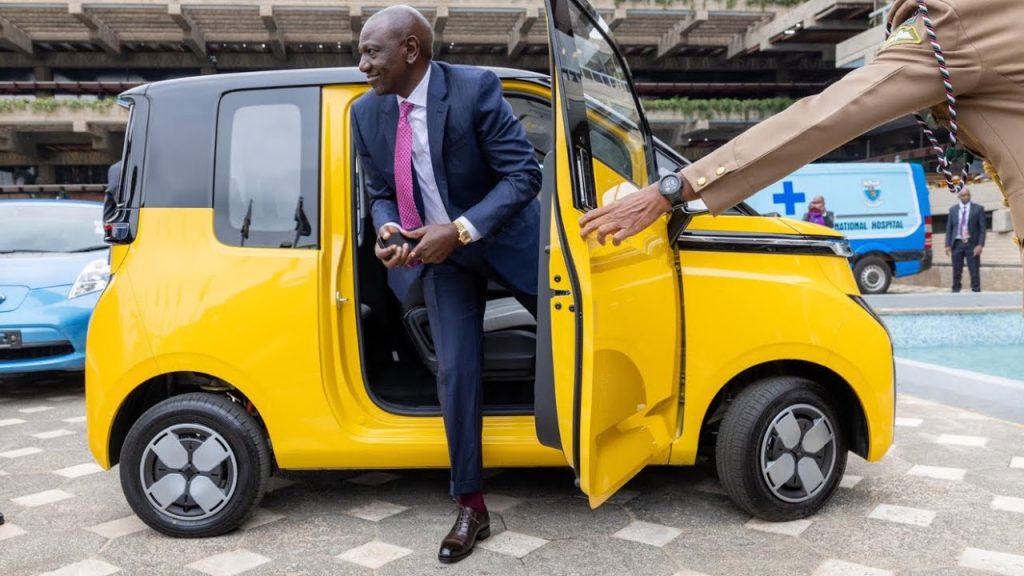
4. Tanzania
Tanzania has grown into one of Africa’s biggest electric vehicle markets, with electric two and three-wheelers being the dominant category on the country’s roads. A 2023 report by the Africa mobility alliance estimated the number of EVs in Tanzania at 5000 vehicles.
While the number of electric four-wheelers remains low, there are still a few recent entries from major dealers, including the Tesla Model S, Renault Zoe, Nissan Leaf, and BMW i3.
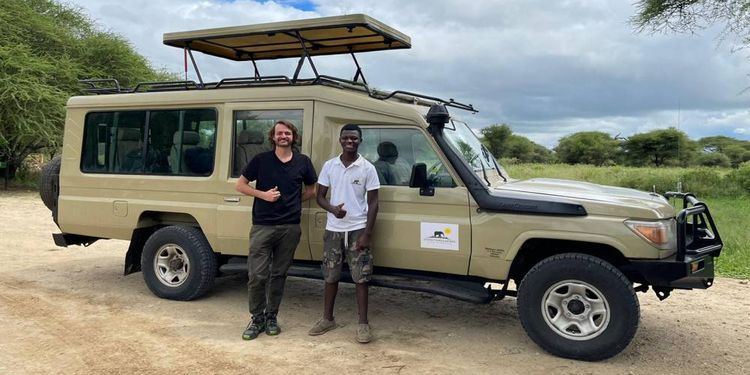
5. Angola
Angola has one of the highest numbers of electric four-wheelers in Africa, with estimates by the Africa Emobility Alliance showing up to 1000 electric four-wheelers.
Policies introduced in 2022 offer import and vehicle tax reductions until 2032. The country is developing an electro-mobility strategic plan to accelerate growth in the sector.
A 2023 report by CVE Angola, an EV company, shows an additional two thousand EV imports from the United States in 2024.
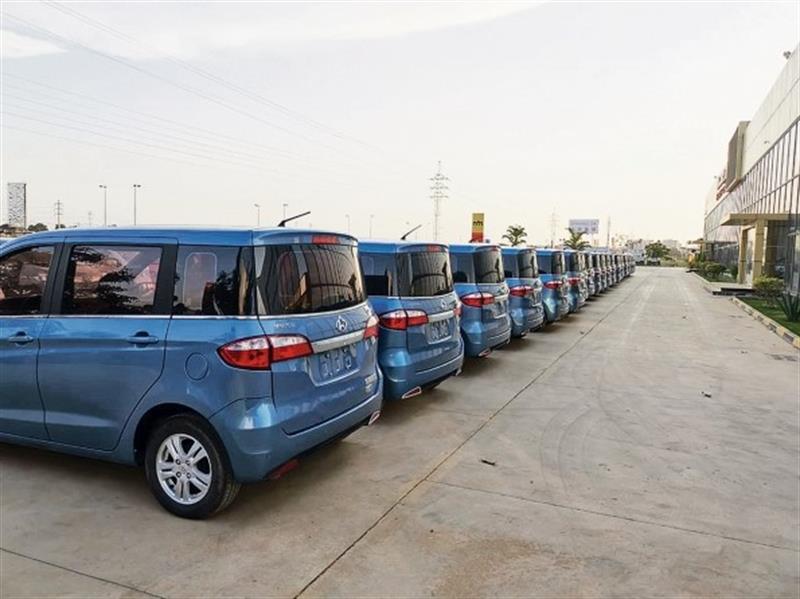
6. Ghana
According to government data, approximately 17,000 electric vehicles, including 2 and 3-wheelers, are currently registered in the country. Ghana also boasts one of Africa’s largest EV four-wheeler fleets, with about 1,000 tracked in the Africa e-mobility alliance’s 2023 report.
In the 2023/24 Budget Speech, the Minister for Finance and Economic Planning unveiled Ghana’s ambitious strategy to boost the EV sector. This includes waiving import duties on EVs for 8 years, starting in 2024. This initiative also includes exemptions on import duties for semi-knocked down and completely knocked down EVs imported by registered assembly companies and an extension of VAT exemptions on locally assembled vehicles for 2 more years.
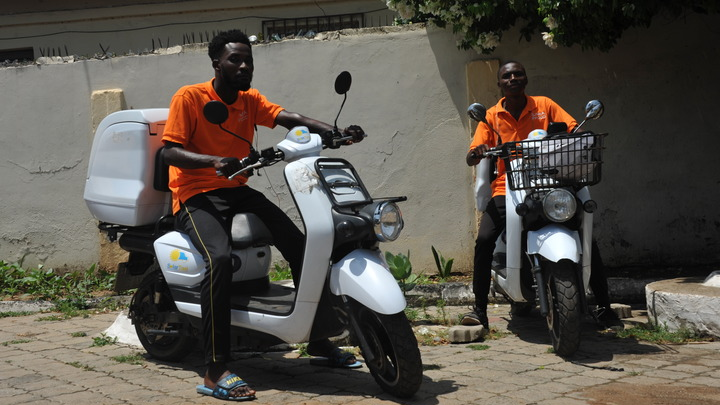
7. Rwanda
In 2022, UNEP reported nearly 900 electric vehicles, including motorcycles and three-wheelers, zipping around Rwanda. That number is rising, driven by supportive government policies fueling a boom in EV-related businesses. Notably, Tesla has entered the Rwandan scene with its Model Y, joining players like BYD from China. The arrival of Kenyan startup BasiGo further underscores Rwanda’s commitment to electrifying transportation. Afema notes that Rwanda currently boasts 1,182 two and three-wheelers.
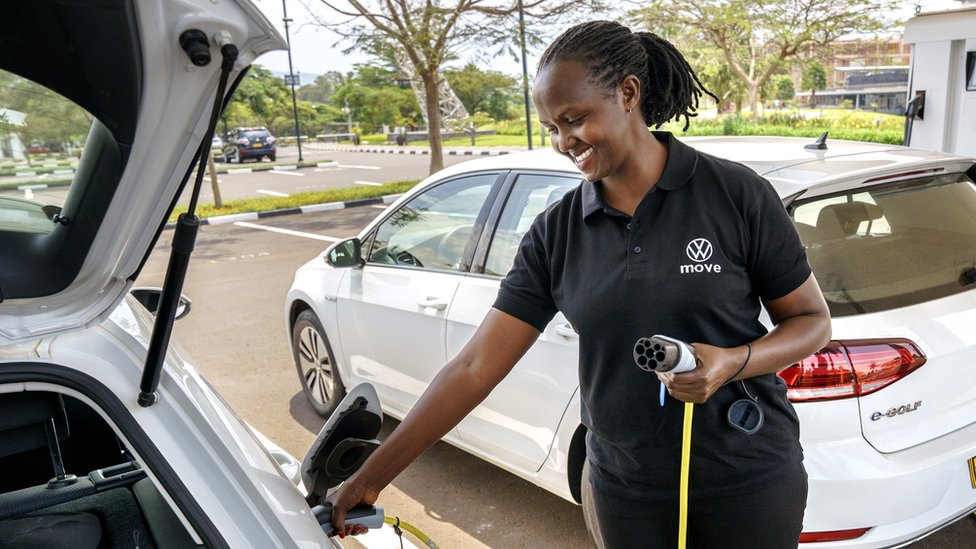
8. Egypt
Multiple estimates from industry professionals suggest there were between 3500 and 4000 EVs in Egypt in 2023, almost double the 1,000 to 1,800 in 2021. According to Afema, the number of four-wheelers EVs is still modest, estimated at 380 as of 2023. 155 of these were electric buses deployed when the country hosted COP 27.
The government has an ambitious plan to encourage local EV production, with up to 100,000 units targeted in a few years. To meet this, the government plans to cover up to 35% of the costs per unit of EV produced locally to encourage the local industry.
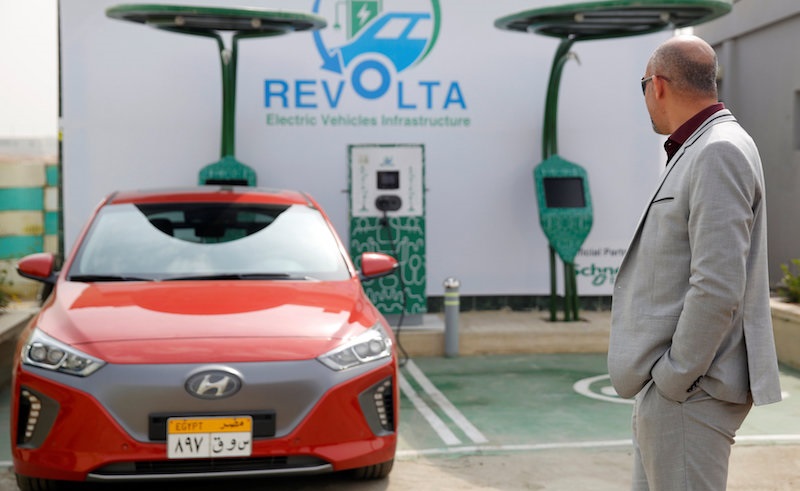
9. Ethiopia
According to estimates from Cleantechnica.com, as of 2023, there were some 5,000 to 7,000 electric vehicles on the roads of Ethiopia, with the sector experiencing significant growth thanks to government incentives. The incentives include VAT, surtax, and excise tax exemptions for all EVs and customs duty tax exemptions for completely knocked-down kits. The Ministry of Transport and Logistics aims to import a minimum of 4,800 electric buses and 148,000 electric automobiles over the next decade, part of a plan to accelerate EV adoption in the country.
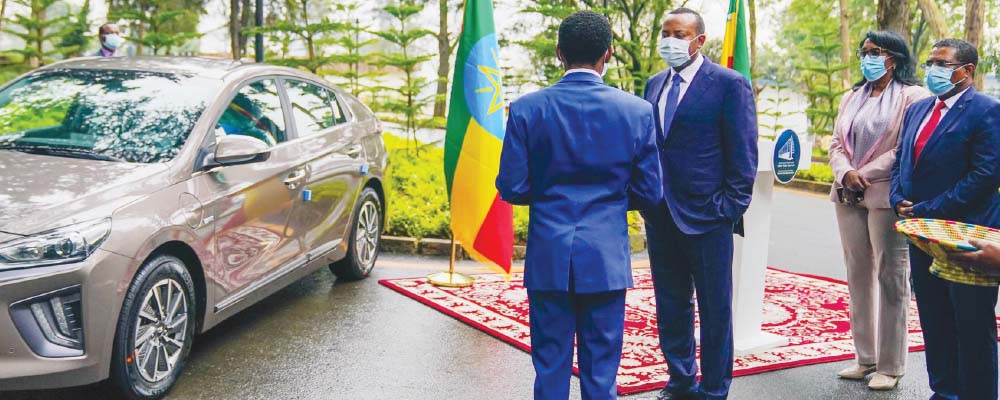
10. Benin
With over 3000 electric vehicles, mainly electric motorcycles, Benin is also emerging as a major player in EV adoption in West Africa. Private clean mobility startups such as Spiro are heralding the shift of the more than 150000 motorcycles in the country to use electric engines. The transformative shift in the country is further evidenced by significant investment in charging infrastructure.
